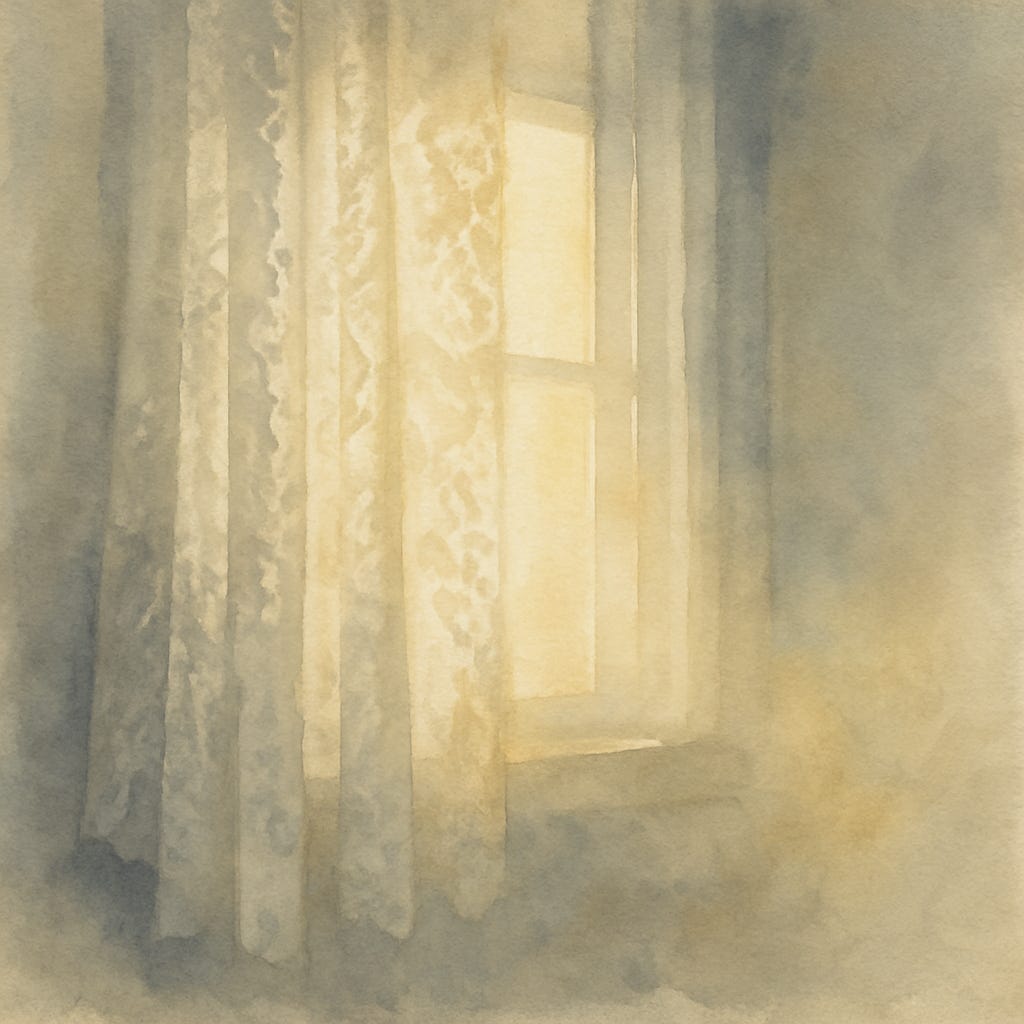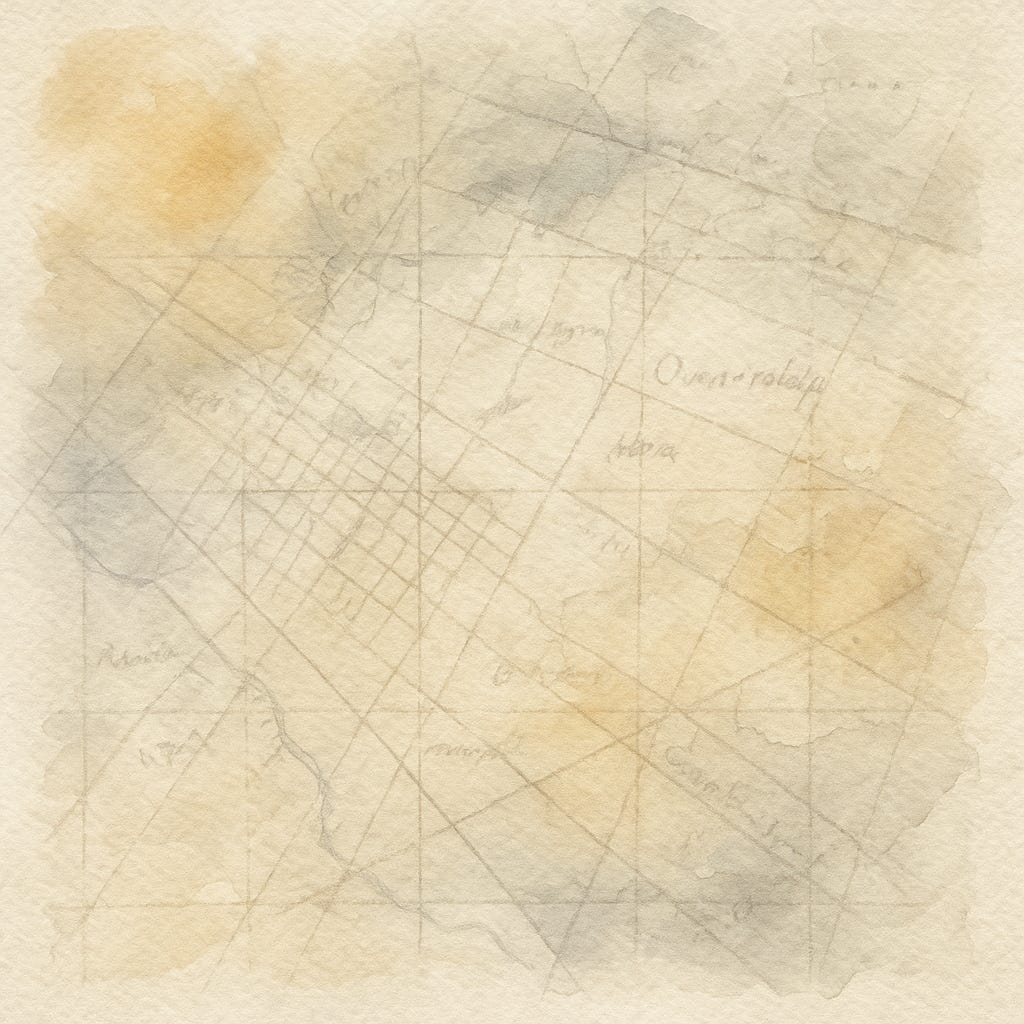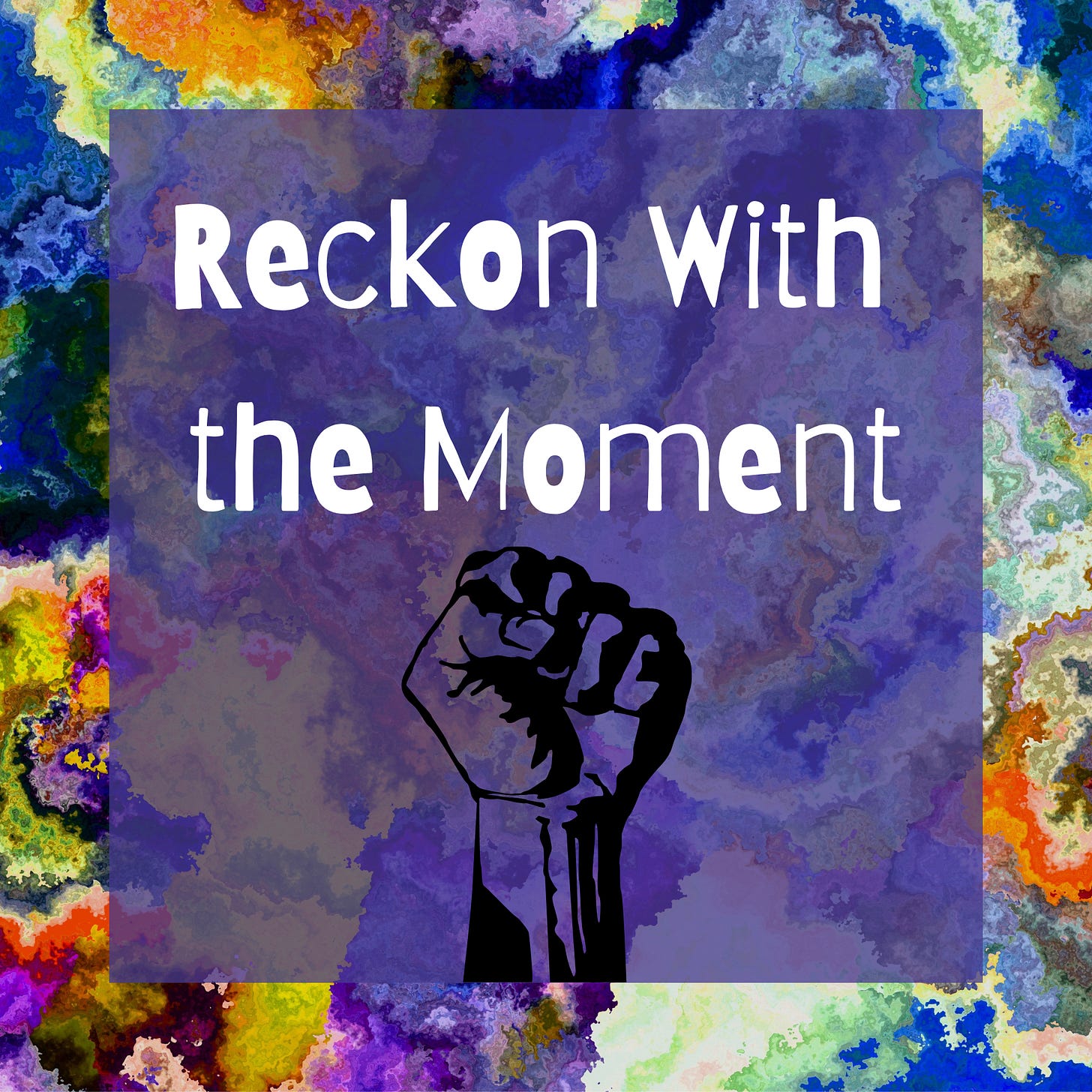The Inheritance We Don’t Talk About
Facing Generational Silence in White Families
Hey friends, let’s get honest for a moment.
If you grew up white in America (or anywhere whiteness holds power), you probably inherited more than hand-me-down china and family recipes. You inherited a silence — one that hums beneath politeness, good manners, and “we don’t talk about politics at the table.”
This is the silence that keeps whiteness comfortable.
It’s what we mean when we say “good people” who “never meant harm,” yet somehow the harm keeps repeating.
Reckon With exists to name that inheritance — to face what white culture taught us not to see, not to say, not to feel.
So today, we’re talking about the inheritance we don’t talk about.
The Inheritance of Silence
In many white families, silence has been mistaken for goodness. We were taught that to be “nice” was to be moral. To be “neutral” was to be safe. To “not see color” was to be fair.
But neutrality is not innocence — it’s complicity wrapped in a smile.
This isn’t about individual guilt. It’s about cultural conditioning so deep that it feels like personality: conflict-avoidant, overly polite, allergic to discomfort. Whiteness has made silence a survival skill — not from oppression, but from accountability.
It looks like:
Changing the subject when someone mentions race or history.
Calling anger “divisive.”
Mistaking politeness for peace.
Apologizing too fast just to move on.
Crying when confronted instead of listening.
We didn’t invent these behaviors. We inherited them. But what we inherit, we also have the power to transform.
A Story
At our white midwestern church, we used to collect canned goods for “the needy.” We never said who the needy were.
We never asked why our city had entire neighborhoods without grocery stores, or why we didn’t drive through them unless we were delivering donations at Christmas.
We were so sure we were helping.
But now I can see that charity was our way of staying safe — a transaction that required no conversation, no accountability, and no shared table.
White silence doesn’t just sound like nothing — sometimes it sounds like kindness.
What White Silence Protects
Let’s be plain: silence is not neutral.
White silence:
Protects white comfort.
Maintains unequal systems by refusing to name them.
Converts responsibility into “kindness.”
Turns harm into history and history into forgetfulness.
Lets us enjoy the benefits of whiteness without facing their costs.
It’s tempting to see silence as gentle, but it’s not gentle to those who live beneath it.
Every time a white parent says, “I don’t want to expose my kids to heavy topics yet,” someone else’s child is living those heavy realities every day.
Every time we stay quiet in a racist conversation, someone else pays for our restraint.
The Reckoning We’re Invited Into
To reckon is to turn toward truth — even when it implicates us. Especially when it does.
Reckoning isn’t a performance of guilt; it’s a practice of responsibility.
Here’s what that looks like in white families and communities:
Name what was left out of the family story. What histories or harms were softened, rewritten, or skipped?
Interrupt the “good intentions” narrative. Instead of defending ancestors or family values, ask, “What were they protecting?”
Refuse the “it was a different time” excuse. A different time for whom?
Talk with other white people about whiteness. Not about “those people,” but about us.
Sit in the discomfort. Discomfort isn’t the problem — avoidance is.
Reckoning isn’t a solo act. It’s a communal muscle we build together — over coffee tables, book clubs, church basements, and living rooms.
Reckon With Practices & Reflections
Try one or two of these this week:
Interview your elders. Ask what they remember about the neighborhoods they grew up in. Who lived there? Who didn’t? Why? Listen for what isn’t said.
Map your racial lineage. How did your family benefit — directly or indirectly — from policies like redlining, land theft, or exclusionary hiring?
Practice staying with discomfort. When shame arises, breathe through it instead of defending. Say, “This is part of my unlearning.”
Notice language that erases. “We didn’t have slaves in our family.” “We were poor too.” “We just worked hard.” Each of these centers whiteness as innocence. Rewrite them into truth.
Connect silence to systems. Ask: “Who gains when white people stay quiet?”
Reflection / Journal Prompts
What stories about race or power were absent from your upbringing — and who benefited from that absence?
When have you chosen comfort over truth? What did that moment cost you or someone else?
What’s one silence you’re ready to break, even if your voice shakes?
Affirmation / Intention
I will not confuse silence with virtue.
I am learning to tell the truth, even when it trembles.
Mini Ritual / Action Step
This week, choose one silence to interrupt.
Maybe it’s naming whiteness in a conversation that usually skirts around it.
Maybe it’s asking a family member about a “forgotten” piece of history.
Maybe it’s saying, “I didn’t realize how much I benefit from this system — I want to learn more.”
It doesn’t have to be dramatic. Small truths spoken consistently create cultural shifts.
Quote
“It is not enough to be quietly non-racist.
We must be vocally anti-racist.”
— Angela Davis
Where in your own lineage — personal or communal — is there a reckoning waiting to happen?
Tell me in the comments. Your honesty might make space for someone else’s.
If this stirred something in you, don’t hoard it.
Pass it to another white friend or family member who’s been feeling the unease but hasn’t had words for it yet.
That’s how the work moves — conversation by conversation, silence by silence.
Recommended Resources
Book: White Fragility by Robin DiAngelo (for understanding the defense reflex)
Podcast: Code Switch (NPR)
Organization: Showing Up for Racial Justice (SURJ)
Website: ReckonWith.org (join a group of 3, explore guided practices)
Final Invitation
If today’s post stirred something in you, don’t let it end here.
Join a Reckon With Group through reckonwith.org.
These small, compassionate circles are for white people — and those who move through the world as white — to face truth, unlearn silence, and begin the slow, sacred work of healing and repair.
We listen.
We learn.
We reckon — together.
📰 Stay updated! Join my newsletter here. 📰
🔗 All My Links 🔗
⚖️ Reckon With ✊
🧙♀️ Blessed Be! 🧙♀️
📚At ThriftBooks, you can earn FREE books! 📖
👻🎃💀🧟♀️🐈⬛♊️ Emilee Avink 🫶🧙♀️🍄🌕🖤🔮🐱🏳️🌈 🧋






Thanks for this really wonderful post about what we inherit and how legacies of harm get built. I really appreciate your thoughts on this.